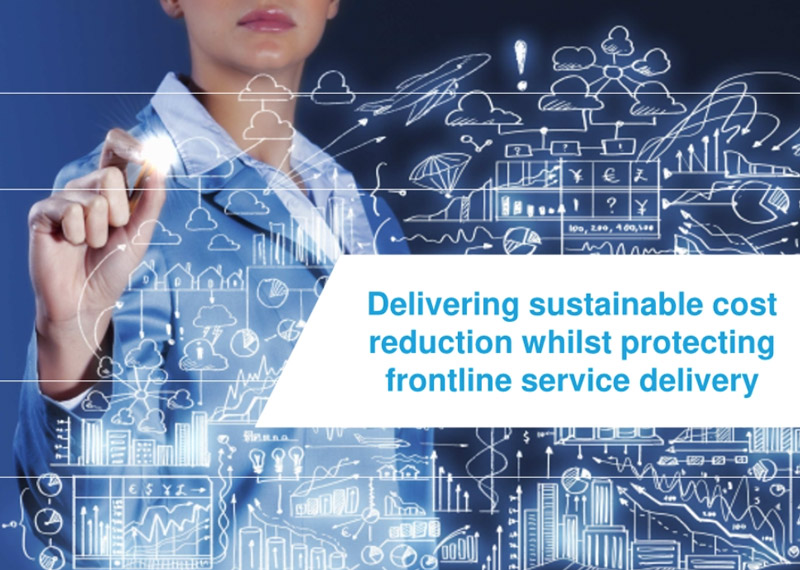The fiscal challenges resulting from COVID-19 will be significant and wide ranging including much of the public sector. So with this backdrop how will the public service protect frontline services for the people of Australia whilst delivering sustainable savings?
There are significant lessons to be learnt from how the public service dealt with the Global Financial Crisis (GFC) across the globe. Our international team of consultants bring insights from a range of successful approaches that were adopted as well as numerous systemic mistakes that were made which resulted in long term service delivery performance degradation.
Truly understand the baseline
Understanding the current organisational baseline in terms of cost and performance is critical. The Government agencies that have responded best to fiscal challenges have invested in establishing a baseline:
- How much do we spend providing this service?
- How important is this service to the community or customer?
- What outcomes are delivered relative to the spend?
Without this information it isn’t possible for agencies to truly consider sustainable service delivery redesign.
Think beyond the next financial year
There is often a tendency for agencies to focus on the immediate financial target i.e. the next financial year (FY). Such short-sightedness typically impedes the ability for an agency to establish a sustainable model in the longer term.
Examples of this short-sighted decision making include adopting coarse techniques including the unilateral cutting of supplies and services and the reduction in back office staff, only to subsequently fill roles with more expensive frontline staff. Despite clear evidence that such decisions inhibit the ability to sustainably reduce cost, these remain the go-to levers when confronted with fiscal challenges.
The more sophisticated and consequently successful agencies have sought to understand their longer term need from the outset. This means considering what are the most valuable services, prioritising them and directing resources to these services.
Avoid analysis paralysis
It is a cliché… but analysis paralysis is real… “refining the numbers..” and “testing a new option” are just two of the standard phrases that are thrown at executives attempting to drive change. Irrelevant of the genuine intent of such questions, unless managed, significant time and effort can be expended undertaking analysis which is inconsequential to the agency’s priorities.
Critical to success is achieving the right balance – moving away from using solely the professional judgement of leaders, often who are 20+ years away from doing the job, whilst not undertaking endless analysis without driving forward movement.
It has to be more than structural change
Whether it be public or private sector, the urgent need to review and address organisational service delivery and cost structures can be confronting. Unfortunately, there can be a tendency for agencies to focus on structural changes to deliver both the immediate and long-term results.
We have seen time and time again that structural changes do not deliver sustainable results. Genuine reduction in operating cost whilst sustaining or enhancing service delivery improvement cannot be delivered without a more sophisticated approach. The most effective organisations direct focus to process improvement and demand management to deliver genuine changes in service delivery.
Truly acknowledge your internal capability
The capability that is required to support the public service in delivering this outcome is significant. Understanding the capabilities that are required; a true assessment of what is available internally; and consideration of the options to fill the capabilities is the key. The agencies that best responded to the challenge were honest when “they looked in the mirror” and used a range of levers including internal secondments, broader public service secondments, capability building, contractors and consultants to best deliver the need.
Those Agencies that performed worst were unwilling to recognise any internal capability gaps and paid little attention to directing resources to focus on delivering the change compared to sustaining business as usual (BAU).
Implementation is everything
One of the most significant factors that impacts why organisations in both the public and private sector fail to deliver upon their intentions is an inadequate focus on implementation. There is typically a view that analytical activities undertaken at the beginning of a project are the complex tasks, and putting in place and sustaining changes are the simple tasks. This couldn’t be further from the truth.
The most effective agencies have prioritised implementation at least as highly as the analytical work and have invested in appropriate change management support in terms of sophistication, time and scale.
“ If done correctly, undoubtedly significant costs can be reduced whilst simultaneously driving improvement (or at least sustainment) in performance outcomes for the community. This isn’t about trying to ‘boil the ocean’ – it is about being methodical and deliberate in decision making; about prioritising; and absolutely about a relentless focus on implementation.”
Neil Greenfield, Director
This document is made by GSA Management Consulting Pty Ltd, an Australian Company. © 2020 GSA Management Consulting, an Australian Company. All rights reserved. The GSA Management Consulting name and logo are registered trademarks. Liability limited by a scheme approved under Professional Standards Legislation.


